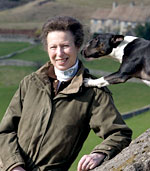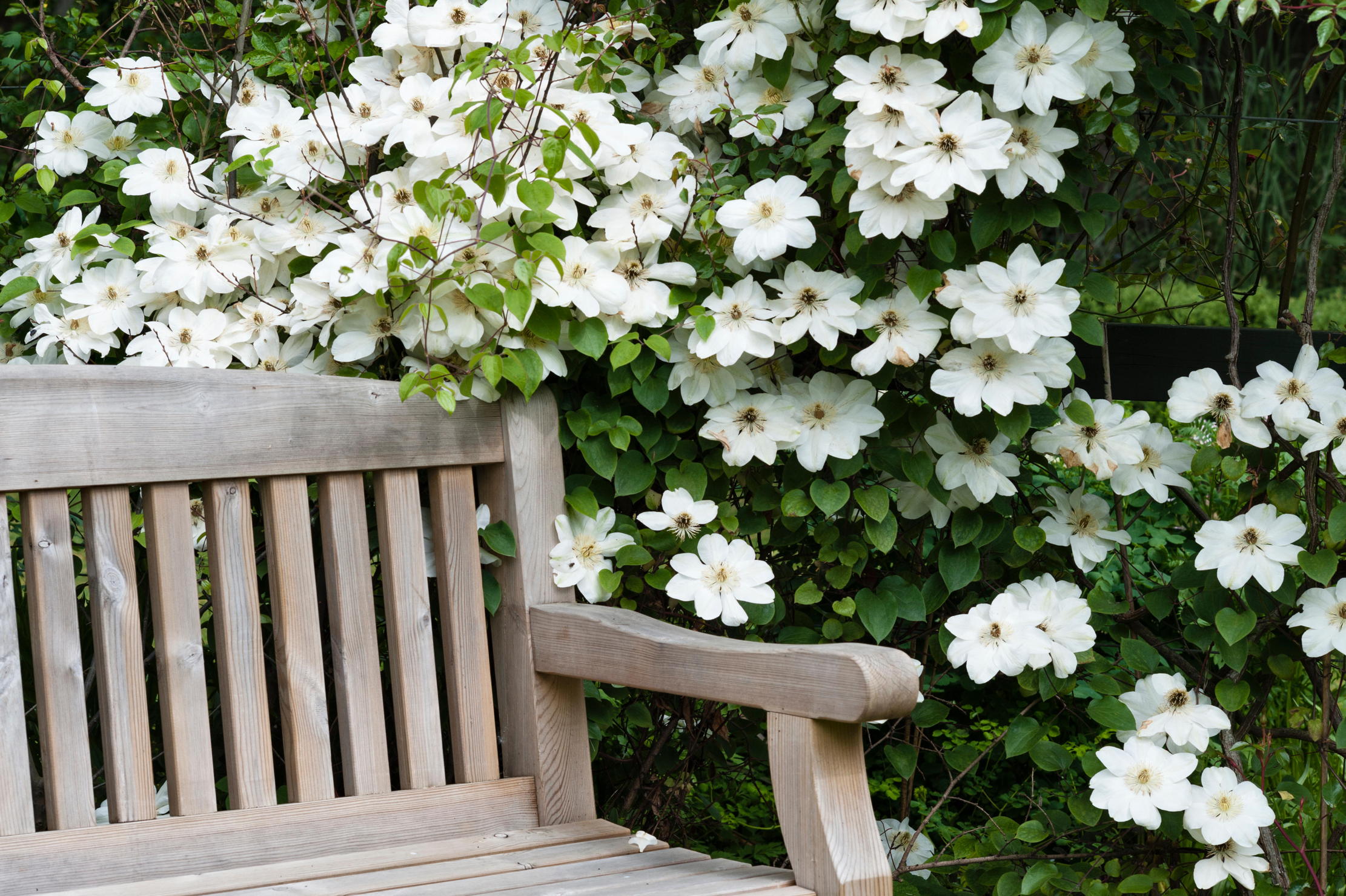Princess Royal interview
The Princess Royal’s countryside interest extend well beyond the horse world, finds Kate Green as she meets her at home in Gatcombe Park


Most people probably perceive The Princess Royal’s countryside interests to revolve entirely around horses, and consider her brother, Prince Charles, to be the Royal Family’s most prominent farmer. What is perhaps less well known is that the Princess is devoted to a charming flock of Scots Dumpy hens, and that the back of her Range Rover is unglamorously full of hedge-cutting equipment. Gatcombe’s farm buildings aren’t grand either, and, as one might imagine, Princess Anne exudes no-nonsense practicality.
She talks with authority and refreshing enthusiasm about the merits and charms of rare breeds indeed, her promotion of White Park cattle has helped to push the breed off the Rare Breed Survival Trust’s endangered list. ‘It’s funny how some animals go out of fashion,’ she observes. ‘People forget to breed the original. The Suffolk Punch [she used to have one herself] was once a good, weight-carrying hunter, but there was so much cross-breeding that it lost its identity.’
The Princess Royal’s 730-acre Gatcombe Park estate, Minchinhampton, began to turn organic after her former husband, Capt Mark Phillips, ceased to farm it in the 1990s. ‘It’s totally changed the make-up of the soil and grass here,’ she says. ‘Rare breeds are convenient and low-maintenance, and they seem to do better on the soil here Cotswold brash and develop good bones. They’ve had an impact on the depth of soil we have a proper topsoil here now and we’ve seen grass mixtures that weren’t here before, such as clover and orchids.’
Gatcombe is entirely grassland, but, together with the rest of the farming world, the Princess awaits with interest the Government’s decision on the future of agri-environmental schemes, having realised that abolishing set-aside may have been too radical. ‘It’s an intriguing debate.
The rules that came with set-aside didn’t let you argue with it, so it will be interesting to see how much choice we will have with what we can do to diversify in future. Will there be the flexibility of saying we’d like to build a wood? And, if we want to run a cross-country course over the farm twice a year, can we do that?’ She sympathises with farmers who say they now need every inch of land for food production, saying: ‘I need every blade of grass for my sheep.’
In addition to the annual Festival of British Eventing that takes place in the natural amphitheatre in front of the 18th-century house every year, begun by The Princess Royal and Capt Phillips in 1983 and organised by the latter, the Princess has, since 1993, run two smaller one-day events that fulfil her desire to provide opportunities to bring on young horses and riders. These events have been sponsored since their inception by Land Rover, and the Princess co-designs the cross-country courses herself, but she warns that even events run on royal property aren’t immune from the recession.
‘People think you’re making money out of these things, but it’s a close-run thing. You’ve got to keep livestock off the cross-country course, often at a time of year when there isn’t any grass anyway. We time our lambing specially for after the spring horse trials. ‘As it will be for everyone else running a sporting event this year, balancing cost against expectation will be key. People will be looking at food, flowers and, dare I say it, loos. If competitors think they’re going to get a drop in entry fees, they’re mistaken. We don’t make enough money. One of the few advantages this year is that fuel prices, last year’s issue, have gone down. But I’d be astonished if the same level of people will go to these things as last year.’
Sign up for the Country Life Newsletter
Exquisite houses, the beauty of Nature, and how to get the most from your life, straight to your inbox.
Maintaining Gatcombe’s balance between diversification and organic status can be exacting. ‘Even picking up people’s hay and other rubbish from their (horse) lorries could threaten our organic status,’ says the Princess. ‘And having the great British public tramping around is hardly organic.’ There’s also a pheasant shoot, which ‘the Soil Association doesn’t like much! They don’t approve of some things that you can feed pheasants, which is probably no bad thing. And they get uptight about horse wormers, which can be rather eccentric. I do worry that one day we’ll be told that we can’t have organic status any more.’
The Princess regularly surveys her farm from the back of a horse. A former Olympic eventer and amateur jockey, she is now breeding from the bloodlines of her last event horse, Black Ice, and she breaks in the youngsters herself. ‘All my horses are for sale, but the difficulty is that if Zara [Phillips, world eventing champion] rides them, I can’t sell them, because people think they must be her rejects! All breeders are faced with this problem. It’s the same for The Queen. If you’re a stud owner, you’ve got to sell the good ones as well as the others in order to keep going.’
The Princess, a former president of the International Equestrian Federation and a member of the International Olympic Committee, remains wedded to the Thoroughbred, despite the fact it’s going out of favour with some riders now that eventing’s endurance factor has been reduced in line with new Olympic format. ‘I’d like to bring back the long format in order to give these horses a job,’ says the Princess, who is monitoring with interest current controversy about Greenwich being too small to host the equestrian events in 2012. ‘There’s a genuine argument for it, from a horse-welfare and safety point of view.
Long format [with 10 miles of roads and tracks and steeplechase phases before the cross-country] had a real benefit as a warm-up, for getting the horse’s anaerobic rate up and the rider’s eye in. There are still riders around with experience of the old format, but when they’ve retired, how will people know how to warm up their horses properly?’
Comparing eventing with other sports, she points out: ‘One-day sport was invented as a means of practising. Cricket has one-day matches, but it’s still the five-day matches that sell the tickets. It’s the same with rugby. Seven-a-side is catching on, but what people really want to watch is 15-a-side.’
The Princess is clearly a champion of tradition and good sense, and how lucky for the countryside and farming that her interests lie there. Perhaps her voice should be heard more often on these topics.
The Land Rover Gatcombe Horse Trials take place on March 28–29 and Gatcombe International is from September 18–20 (www.gatcombe-events.co.uk) The Festival of British Eventing is on August 7–9 (www.gatcombe-horse.co.uk)
Country Life is unlike any other magazine: the only glossy weekly on the newsstand and the only magazine that has been guest-edited by HRH The King not once, but twice. It is a celebration of modern rural life and all its diverse joys and pleasures — that was first published in Queen Victoria's Diamond Jubilee year. Our eclectic mixture of witty and informative content — from the most up-to-date property news and commentary and a coveted glimpse inside some of the UK's best houses and gardens, to gardening, the arts and interior design, written by experts in their field — still cannot be found in print or online, anywhere else.
-
 The Business Class product that spawned a generation of knock-offs: What it’s like to fly in Qatar Airways’ Qsuite cabin
The Business Class product that spawned a generation of knock-offs: What it’s like to fly in Qatar Airways’ Qsuite cabinQatar Airways’ Qsuite cabin has been setting the standard for Business Class travel since it was introduced in 2017.
By Rosie Paterson
-
 Six of the best Clematis montanas that every garden needs
Six of the best Clematis montanas that every garden needsClematis montana is easy to grow and look after, and is considered by some to be 'the most graceful and floriferous of all'.
By Charles Quest-Ritson